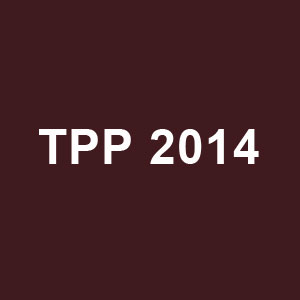Giving birth to ‘a third world as work in common and space-time to be shared’. The importance of Irigaray and Butler to staging Kane’s Cleansed (1998).
The paper draws on dramaturgical enquiry into Sarah Kane’s 1998 play Cleansed, carried out in a university studio space and a public gallery setting. The enquiry applied the philosophies of Luce Irigaray and Judith Butler, positing Cleansed as a theatrical meditation on gender – one that requires actors to develop an ethics for the performing of sex, desire and violence. The research found that Irigaray’s and Butler’s ideas can be usefully applied to explore and contest binary constructions of gender, and provide vital philosophical frameworks for staging sexuate difference and transgender becoming in Kane’s text. Cleansed centres its trajectory on an investigation of clothing and bodies which implicates and indicates the gender binary as a site of contestation, violence, desire, making, unmaking, resistance and mucosity. It encodes significant lesbian aesthetics of butch-femme play and languour in its performance structure. Its focus on sexuate difference, ‘one of the major philosophical issues, if not the issue of our age’ (Irigaray), and its movement between genders is supported with dramatisations of touch and breath at key gestic moments. The paper discusses how actors chose to stage these moments, analysing the choices made with reference to The Forgetting of Air, Sexes and Genealogies, The Marine Lover of Friedrich Nietzsche, and This Sex Which Is Not One (Irigaray). It discusses the nature of speech and desire – particularly female and lesbian desire – and the denial or erasure of this, with reference to Antigone’s Claim (Butler). It reflects on the aesthetics of female and queer authorship at the Greenham Common Women’s Peace Camp, and the traces of this historical moment in Cleansed. Finally, it contextualises Kane’s representations of gender violence with reference to Frames of War (Butler) and notes how philosophical discussions of time and irreducible difference can assist inter-generational dialogue in the rehearsal room.
Dr. Nina Kane is an Associate Lecturer at the University of Huddersfield, UK, and Artistic Director of Cast-Off Drama – a theatre company working in gallery, studio and festival spaces. She gained a doctorate from Huddersfield in October 2013, with a thesis entitled:
« F – F – Felt it ». Breathing Feminist, Queer and Clown Thinking into the Practice and Study of Sarah Kane’s ‘Cleansed’ and ‘Blasted’. She also holds a PGCE in Lifelong Learning, a Masters with Distinction in Writing for Performance, BA-Level credits in Drama and Theatre Studies and a BA Hons in English from King’s College, University of Cambridge.

